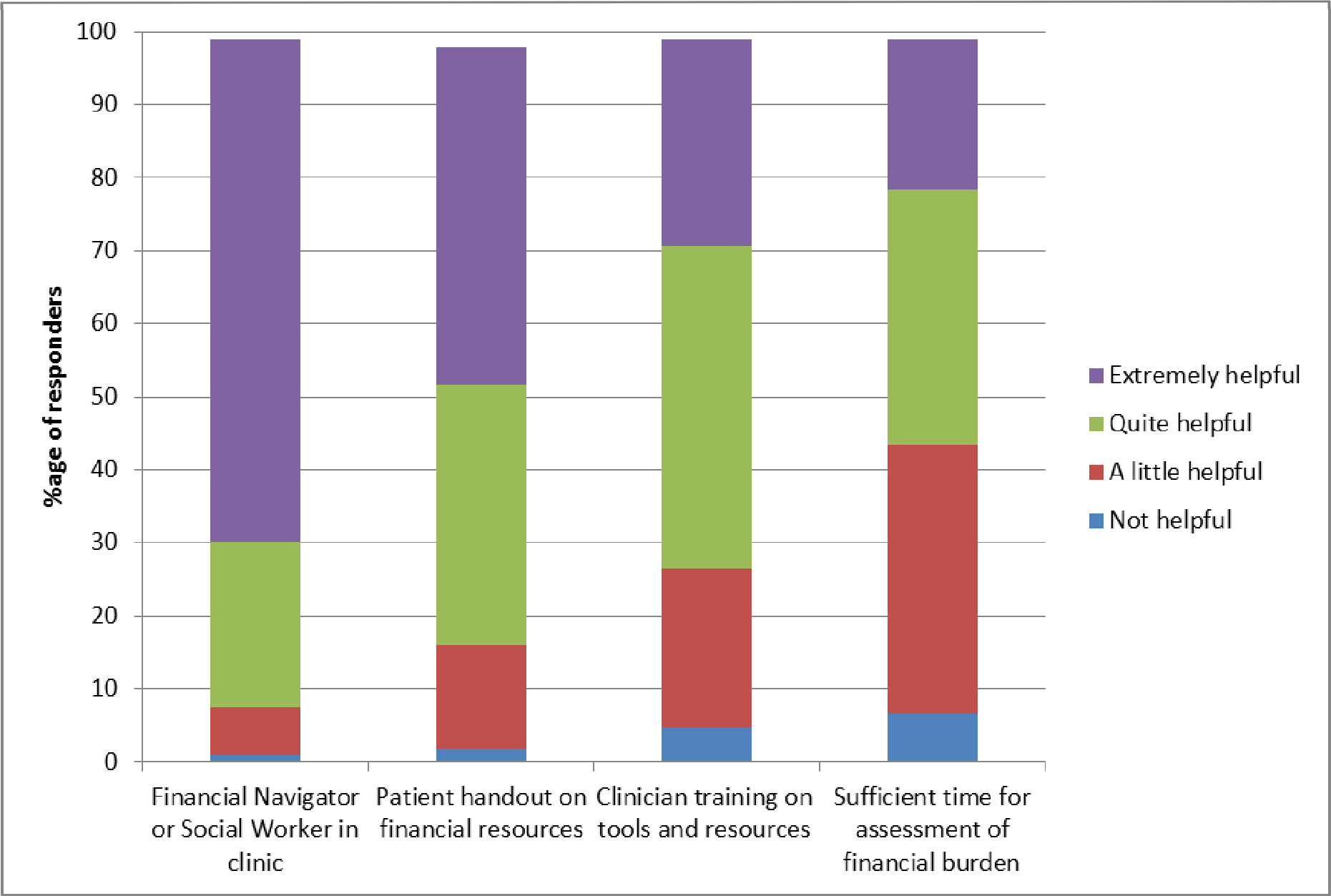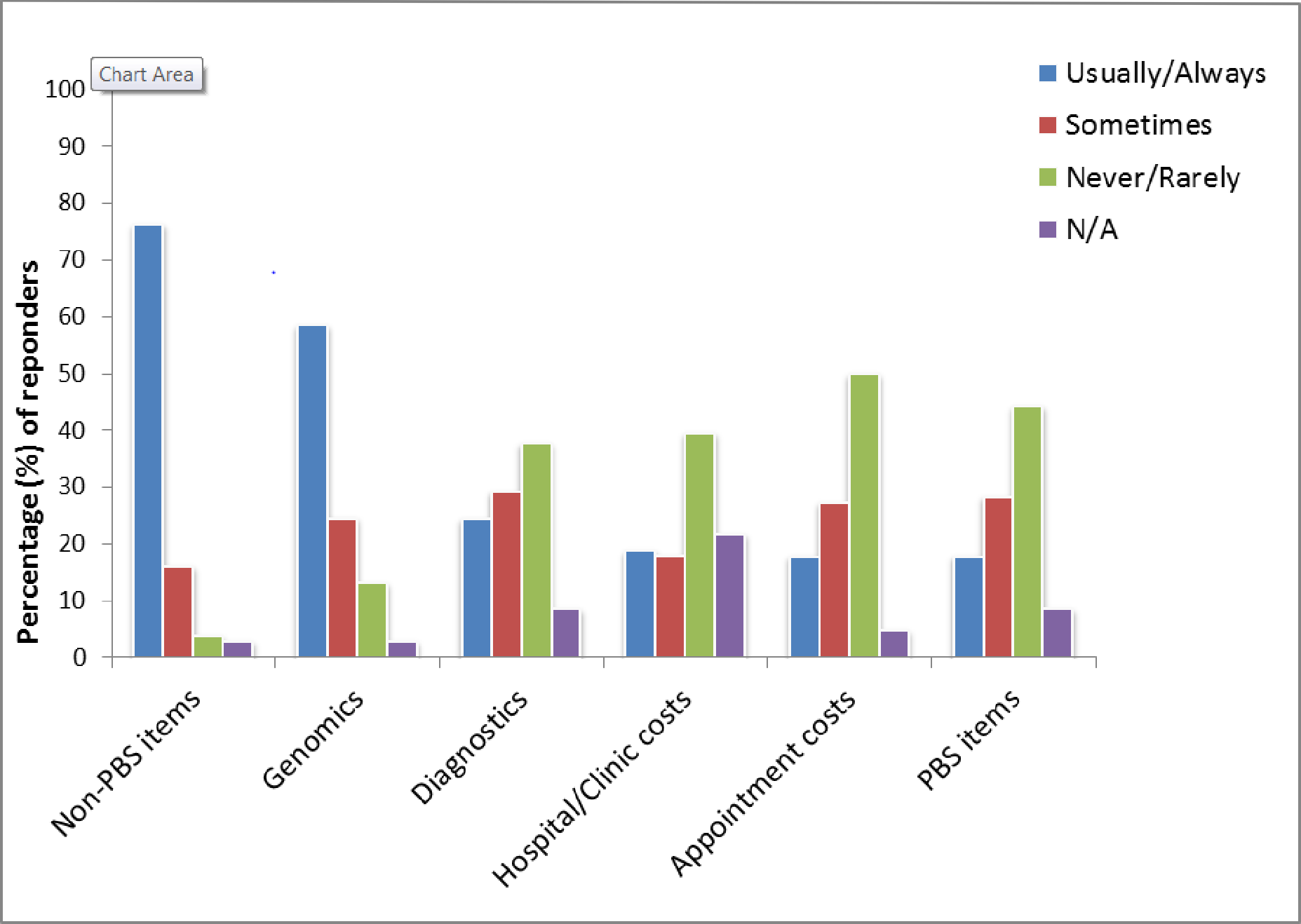Oncologists are backing the use of clinic social workers to help patients manage financial toxicity, with almost 70% in a recent poll saying an on-site financial navigator would be “extremely helpful”.
Based on the survey answered by 106 Medical Oncology Group of Australia members, there also appears to be a growing acceptance of the need for doctors to discuss costs of care with patients. Two thirds of respondents felt this was their personal responsibility as oncologists.
However, only 3% said they actually discussed costs with all of their patients. And some 65% said these discussions were generally initiated either by patients or their family members or carers.
“Despite the introduction of a standard for informed financial consent in medical oncology in Australia, clinicians were less likely to report implementation of this consent to facilitate a cost of care discussion,” the researchers wrote in PLOS One (link here).
“This is likely due to the lack of easily available information about costs of care for oncologists to discuss with patients, and differences in costs between practice types, locations, and tumour types.”

Oncologists’ views on tools to assist in management of financial burden in the clinic. (Source: PLOS One; online)
While the overwhelming majority of the specialty was now aware of the issue of financial toxicity, most oncologists needed some help when it came to assisting patients, the researchers wrote.
Asked to rate the usefulness of various potential strategies to facilitate discussions around the financial burdens of care, an overwhelming majority supported the integration of financial navigators or social workers in their clinics.
All but a handful said they would be at least somewhat helpful and over 90% rated them “extremely” or “quite helpful”.
Most also said there was value in patient handouts on financial resources, while a lesser proportion said they would appreciate extra training or more time to assess the financial burden of care for each patient.
Oncologists were most likely to discuss financial issues in the context of conversations about non-PBS medicines and genomics, the research found.

Reported frequency of discussions in the last 12 months about specified out-of-pocket costs (source: PLOS One; online)